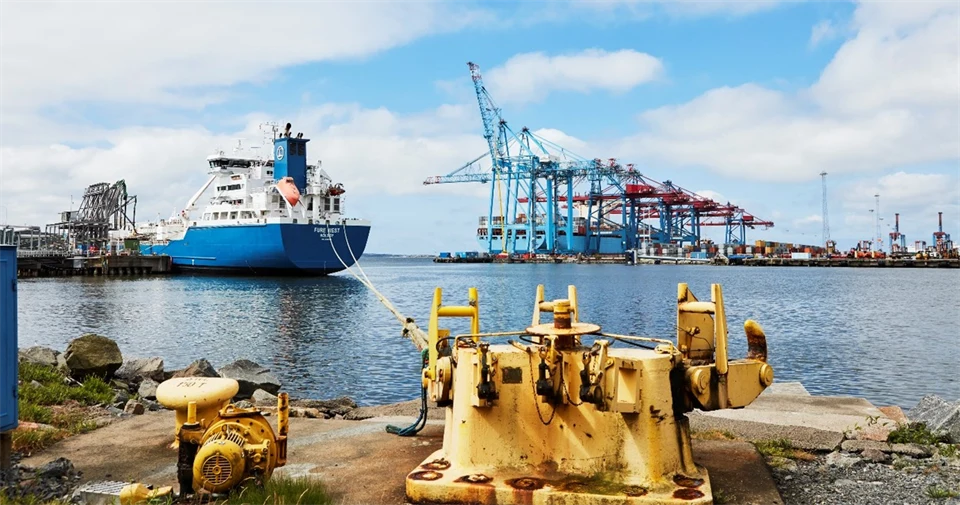Navigating the Future:
Towards a fossil-free and resilient transport system – climate adaptation of seaports to extreme weather events

A port infrastructure with the ability to withstand disruptions and adapt to maintain functionality is a prerequisite for the fossil-free and resilient transport system of the future.
To ensure efficient and sustainable shipping in the future, the maritime transport system needs to adapt to a changing climate. Ports are a central node in the transport system, linking countries, industries, and modes of transport, making them particularly critical to adapt to climate change. Around 170 million tons of goods and over 90% of the total volumes of all imports and exports in Sweden go through the ports.
The deep uncertainty associated with the course and extent of climate change, together with long time perspectives, creates a great need for flexibility, both in solutions, policies and decision-making processes. Today, this perspective is partly lacking for Swedish infrastructure.
Aim
This project explores, adapts and further develops a framework for adaptive and flexible climate adaptation of the maritime transport system. The framework will take into account uncertainties and decision-making over time, allowing for successive pathways of strategies towards a common vision of climate-proof, resilient and sustainable ports.
The overall aim is to support ports to be better prepared for future disruptions caused by extreme weather and multiple weather events.
Approach
This project will investigate the vulnerabilities of the maritime transport system to climate change, the resulting impacts, and how these risks extend beyond port areas. It will assess ports' readiness for extreme weather, including the probability of simultaneous events. The project aims to develop a long-term vision for resilient and sustainable ports by identifying climate adaptation pathways and effective decision signals. It will also examine methods for evaluating these pathways under high uncertainty and long timeframes, and provide recommendations for overcoming obstacles and leveraging opportunities in climate adaptation.
Expected outcomes
The project is expected to result in a framework for adaptive and flexible climate change adaptation of ports to climate change and extreme weather events. This framework is intended to provide ports with the right tools and guidelines to better manage and adapt to future disruptions caused by extreme weather and multiple weather events.
The project is also expected to create engagement and a common vision for climate change adaptation, as well as increase knowledge about the effects of climate change and different strategies to increase resilience and sustainability. It is expected that these efforts will help ports to be better prepared for future challenges and increase their ability to deal with uncertainties in climate adaptation, sustainability and resilience, and how it can be valued.
Target group
The primary target group is Swedish ports and port municipalities, while the secondary target group includes port stakeholders (shipping companies, cargo owners, logistics operators) and transport infrastructure in general, as well as international ports.
Short project facts
Titel: Navigating the Future: Towards a fossil-free and resilient transport system - climate adaptation of seaports to extreme weather events
Project period: March 2024 to March 2027
Partners: The project is led by the Swedish National Road and Transport Research Institute (VTI) and is a collaboration with the Swedish Meteorological and Hydrological Institute (SMHI) and the Port of Gothenburg.
Reference group: Representatives from the City of Gothenburg, the Swedish Maritime Administration, the Swedish Transport Administration, the Swedish Civil Contingencies Agency, Copenhagen-Malmö Port, the Port of Trelleborg, the Swedish Transport Agency, and the County Administrative Board of Västra Götaland
Project coordinator: Gunnel Göransson, VTI
Funding: The Swedish Energy Agency
